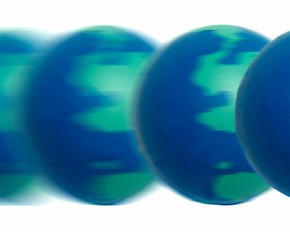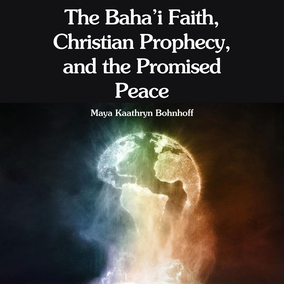The views expressed in our content reflect individual perspectives and do not represent the authoritative views of the Baha'i Faith.
In our society today there appears to be a close relationship between social status, identity and power.
Certain individuals or groups possess more power than others simply by virtue of their position in society or the function that they perform. For example, a medical doctor is a well-respected profession that holds more social power than say an elementary school teacher or a sanitation worker.
This kind of value judgment, not merely limited to one’s profession or occupation, further extends to questions of race, class, ethnicity, religion and gender. Society tends to value certain groups more than others, generating power imbalances and social hierarchies which perpetuate systems of injustice. For instance, we can consider two medical doctors who both share the same highly valued profession, and yet these same two individuals will likely have vastly different experiences if one comes from a minority cultural background.
Why might this be the case in many of our societies today? It seems as though our worth and value in society are derived as a function of two major components including the role that we perform along with our multicultural identity. Our degree of worthiness depends on how valuable society deems both our role and our identity to be. According to these same rules, we do not possess any inherent worth or value in our existence as human beings, yet rather our value is determined by whatever society says is valuable at a given moment of time in history.
At one point in ancient Greece and other early civilizations teachers, educators, and artists were the most valued, noble and revered professions to exist at the time. The situation seems quite different today, as these same professions are largely undervalued and often ignored in various ways—and those who come from minority populations often face further injustices and suffering.
The Implications of a Universal Spiritual identity
The teachings of the Baha’i Faith overturn these notions of societal-derived worth. Baha’is view all human beings as noble reflections of the Divine, with the capacity to reflect all of God’s virtues including love, knowledge, truth, and justice. As a result of this universally shared spiritual identity, each and every human being possesses an intrinsic worth and value independent of their role in society or any other cultural factor. Baha’u’llah wrote that this value comes from God rather than from the subjective judgement of other human beings:
O Son of Spirit! Noble have I created thee, yet thou hast abased thyself. Rise then unto that for which thou wast created. – Baha’u’llah, The Hidden Words, p. 9.
The realization of our own intrinsic worth and nobility can liberate and free us both spiritually and psychologically, as we no longer have to strive to seek our worth and value through the eyes of others, but instead recognize that it has already been given to us by God. We can then in turn begin to act according to this sense of spiritual identity which bestows worth and nobility on every human being.
As a natural consequence of this intrinsic worth, an individual’s power becomes decoupled from their position or status in society. The medical doctor has no more or less power and worth than the teacher or sanitation worker. They all reflect the same Divine essence, and hence are equals from this perspective. The Baha’i teaching of the oneness of humankind is a broader extension of this fundamental principle, in which all peoples on the planet are regarded as equal regardless of social status, race, class, gender, religion or any other social divide:
O Children of Men! Know ye not why We created you all from the same dust? That no one should exalt himself over the other. Ponder at all times in your hearts how ye were created. Since We have created you all from one same substance it is incumbent on you to be even as one soul, to walk with the same feet, eat with the same mouth and dwell in the same land, that from your inmost being, by your deeds and actions, the signs of oneness and the essence of detachment may be made manifest. Such is My counsel to you, O concourse of light! Heed ye this counsel that ye may obtain the fruit of holiness from the tree of wondrous glory. – Ibid., p. 20.
Unity in Diversity and Individual Initiative
Closely related to the oneness of humankind is the notion of unity in diversity. Although we are all in essence one and equal, we still maintain our own unique individuality. Indeed, we each possess a unique profile of qualities, traits, talents, potentialities, life experiences, cultures and backgrounds. This implies that different individuals may perform different roles, functions, jobs, and tasks within society due to their uniqueness.
With a shared spiritual identity consisting of our inherent worth and nobility along with the principle of the oneness of humankind, we can attain a global consciousness and adapt a holistic systems view of the Earth with all its peoples and inhabitants. We can come to view ourselves and others as one human race, one unified human body consisting of different individuals. In fact, the Baha’i writings metaphorically and symbolically illustrate this idea by comparing the whole of humanity to one single human body, consisting of multiple parts and organs integrated and working together for the harmonious functioning and development of the whole:
For instance, as we have observed, cooperation among the constituent parts of the human body is clearly established, and these parts and members render services unto all the component parts of the body. For instance, the hand, the foot, the eye, the ear, the mind, the imagination all help the various parts and members of the human body, but all these interactions are linked by an unseen, all-embracing power, that causeth these interactions to be produced with perfect regularity. This is the inner faculty of man, that is his spirit and his mind, both of which are invisible. – Abdu’l-Baha, Tablet to Auguste Forel, pp. 22-23.
As individuals, we represent the different organs of the human body that must work together as part of a much larger and infinitely more complex system. Considering the human body in all of its complexity such as its various organs, tissues, and systems, can we say that one particular organ is really more important or valuable than another? Is the brain more important than the liver from a systems viewpoint? The human body cannot properly function without either organ. From this perspective, we can see that each of the component parts of a system have equal importance, each one valuable and vital in working together in harmony for the functioning of the whole:
Consider the body of man, and let the part be an indication of the whole. Consider how these diverse parts and members of the human body are closely connected and harmoniously united one with the other. Every part is the essential requisite of all other parts and has a function by itself. – Ibid., p. 21.
From a Baha’i perspective, the entire power structure and hierarchy that has dominated human civilizations for so long has been revolutionized into a structure based on the oneness of humankind. In that new order, all human beings are equally valuable, worthy and noble and therefore share power together as equals in order to build a better world for all peoples. Accordingly, every individual contributes a crucial part in the development and transformation of society, no matter how small or large and in whatever shape, form, or capacity.
We each have an important role to play in the regeneration of the world and in bringing our global family together as one.
















Comments
Sign in or create an account
Continue with Googleor